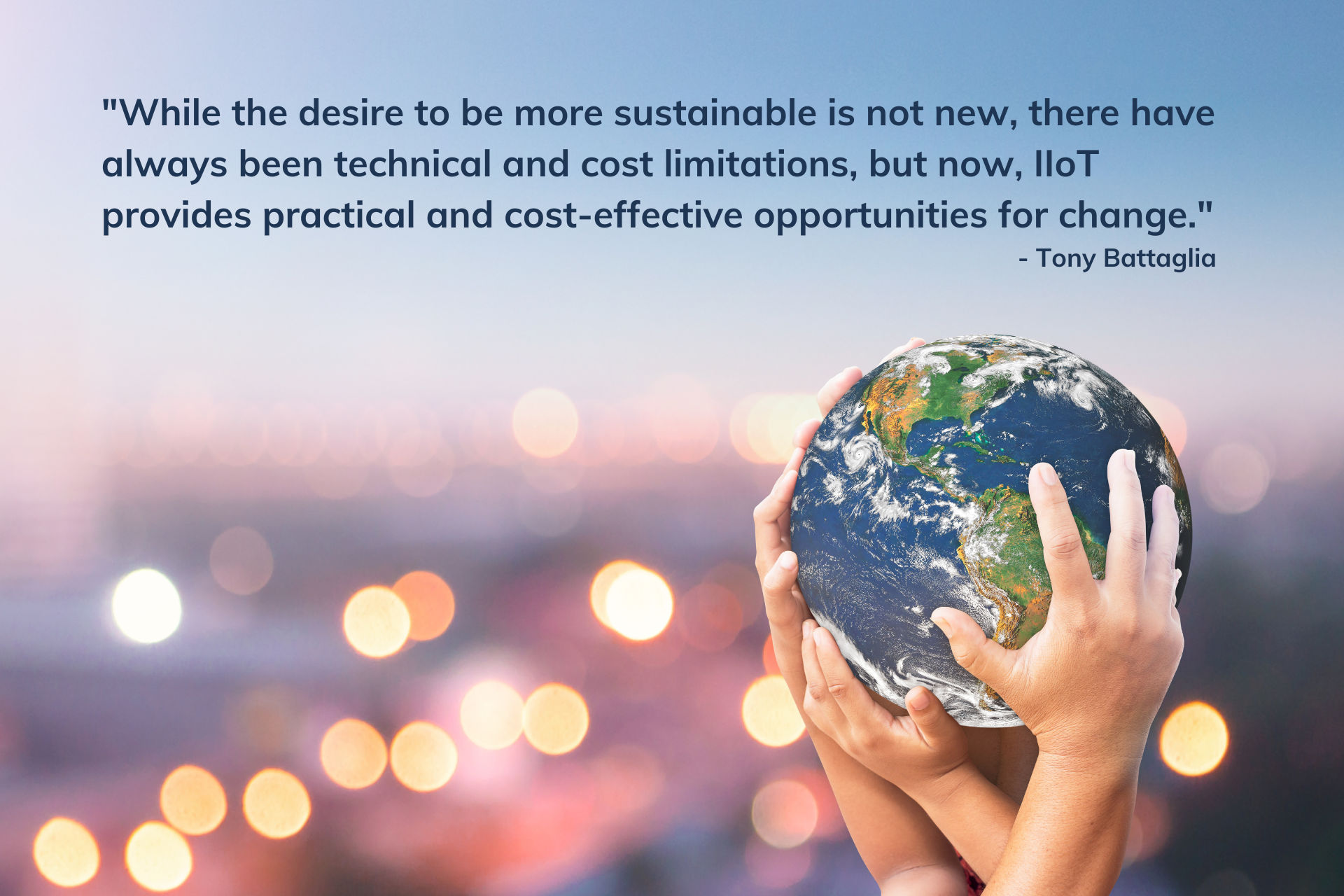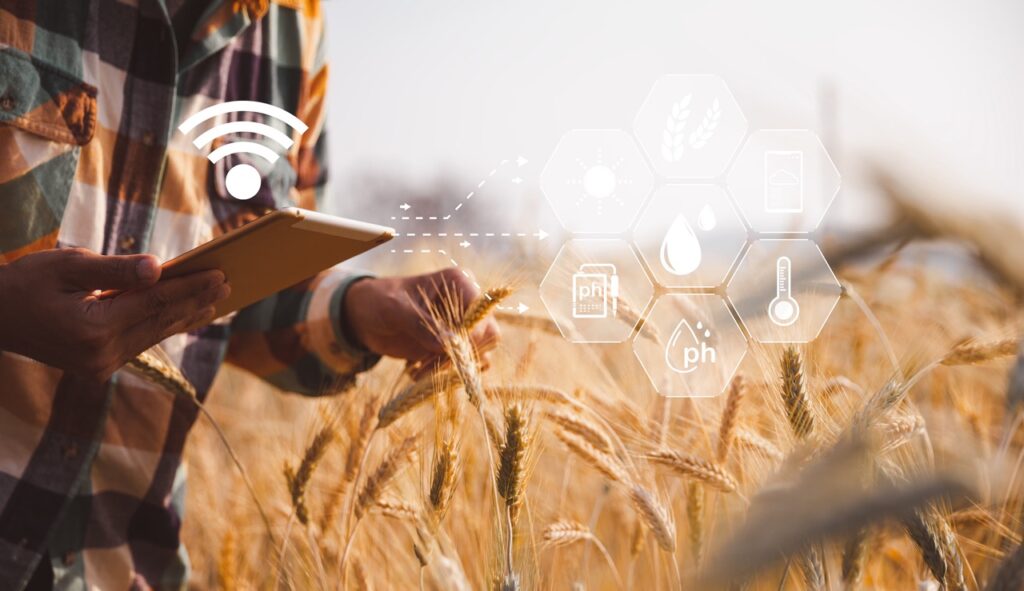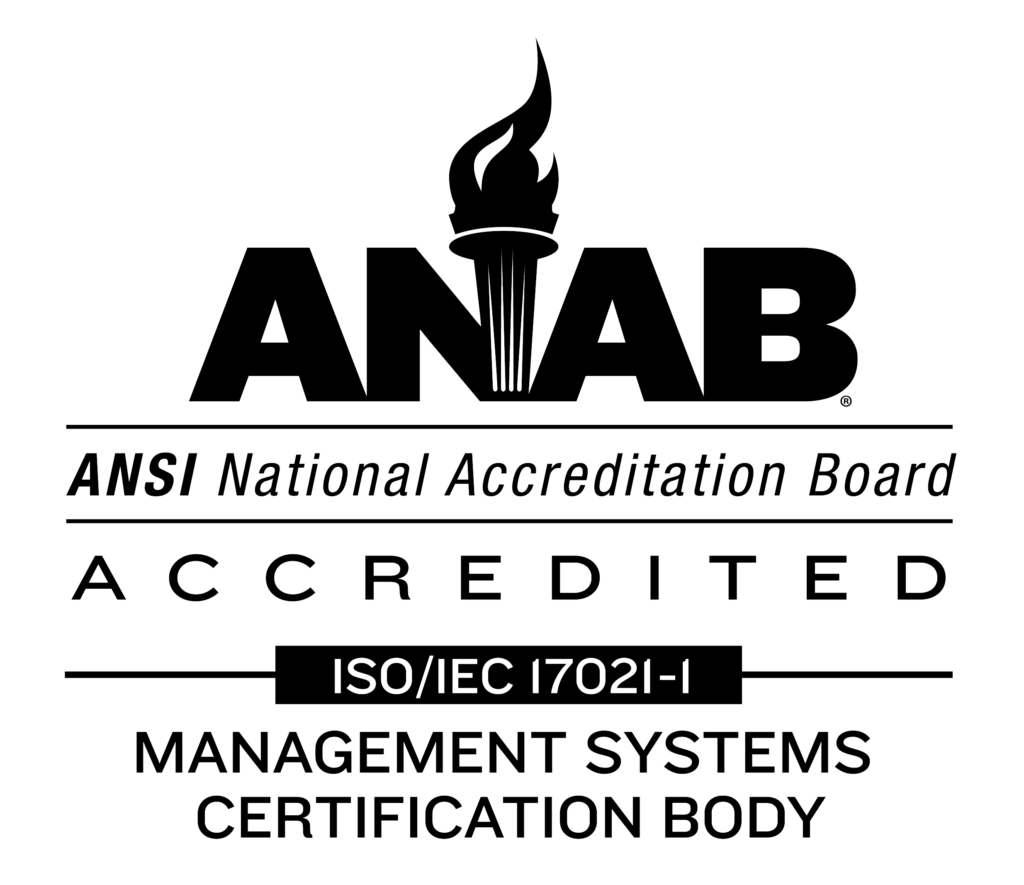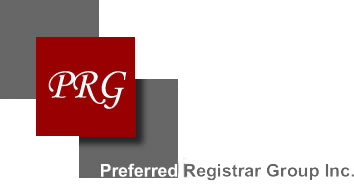
When I think about technology’s impact on sustainability, I think about home.
I live in California, and earlier this year there was a fire in my area which, unfortunately, destroyed a lot of houses and affected many families. Luckily, because my city deployed industrial internet of things (IIoT) solutions for fire protection services, they were able to detect this fire early on and prevent further damage in the area. In this scenario, IIoT solutions provided timely insights which allowed the appropriate resources to respond faster, creating a better and safer future for my community.
The unlikely pair
Sustainability is a widespread conversation these days, and for good reason – a more environmentally conscious world equals better quality of life for us all. As such, electric cars are on the rise, paper straws are everywhere and many companies are doing their part to minimize their carbon footprint. As a collective, we are making great strides in our attempt to create more eco-friendly communities. Amidst our best efforts, however, many may not realize the positive and profound role modern technology, specifically IIoT, can have on our journey towards a greener society.
This may come as a surprise, but now more than ever, IIoT is playing a key role in realizing our sustainability goals.
Real-world change
Today, IIoT technology is completely enhancing our approach to transformative environmental practices by providing the power of response. By implementing IIoT into our data, we can do much more than just monitor data; we can actually respond to data by pulling trends, sending out alerts, leveraging artificial intelligence and so much more. IIoT allows us to take data-driven action, and this is ultimately having a significant impact on the environment and entire industries across the globe.
Industry-wide impact
In 2015, The United Nations Member States all adopted the 2030 Agenda for Sustainable Development. This global partnership calls countries into action to create a stronger planet by implementing eco-friendly strategic practices to achieve 17 different Sustainable Development Goals (SDGs). Technology plays a significant role in realizing these SDGs. In fact, there are a variety of industries becoming more sustainable because of IIoT. Let’s look at energy, for example. Recently, the energy space began implementing environmental and social governance (ESG) criteria. Now, different organizations can receive access to various federal funds depending on their ability to meet ESG standards. Without the use of IIoT practices, procedures and functions, these organizations could not make the improvements needed to contribute to their environmental goals. With the use of IIoT, these same companies can effectively monitor and manage environmental assets through automated procedures that contribute to more efficient industries and remote work environments across the board. Ultimately, IIoT technology offers the insight and practical solutions needed for these companies to create positive structural changes.
The benefits don’t stop there.
We’ve all heard or read that our water supply is endangered, and this is not just a California issue, like many assume; it’s a widespread problem that needs immediate attention. The rapid rate of water decrease is not just a byproduct of human consumption, it is also a direct result of everyday processes, industrialization and the ever-changing climate. Today, IIoT products are providing simple solutions to monitor timely data metrics like rainfall rate and water consumption. These solutions respond to water shortages and water waste in innovative ways. Through IIoT, we now have the ability to adjust and adapt our behaviors based on data visualizations, and throughout the process, greater sustainability is achieved worldwide.
The IIoT difference on finite resources
With sustainability, the goal is really to manage the lifespan of an existing asset, be it drinking water, livestock, oil and gas, the list goes on, and with IIoT technology, we can better control our ability to manage these assets. While the desire to be more sustainable is not new, there have always been technical and cost limitations, but now, IIoT provides practical and cost-effective opportunities for change.
At FreeWave Technologies, we’re committed to improving life’s essentials through Industrial IoT solutions. Our full line of connected IIoT network solutions bring most needed data to operations teams wherever they are and our ready-to-deploy solutions play a significant role in environmental monitoring ultimately leading to safer and more sustainable communities. When it comes to Environmental IoT™ we are spearheading a new way forward, offering solution-based products that empower industrial leaders to manage their assets simply and intentionally.
Our single pane of glass dashboard creates a singular view for our customer, allowing them to track, control and respond to timely data metrics in one place instead of multiple dashboards across applications.
Products that solve problems are important, and that’s exactly what we’re providing at FreeWave. We’re shifting the culture of sustainability from altruism to action, and it’s making a substantial difference.
At the end of the day, I care about the world that I’m leaving for the next generation. Every day I think about my two children and the world they’ll grow up in; I want to do my best to create a place where they can thrive, and I’m excited to be a part of an organization that is achieving just that.

Tony Battaglia is the director of global sales at FreeWave, provider of industrial wireless and IIoT solutions for people passionate about the beauty of a data-informed world.





